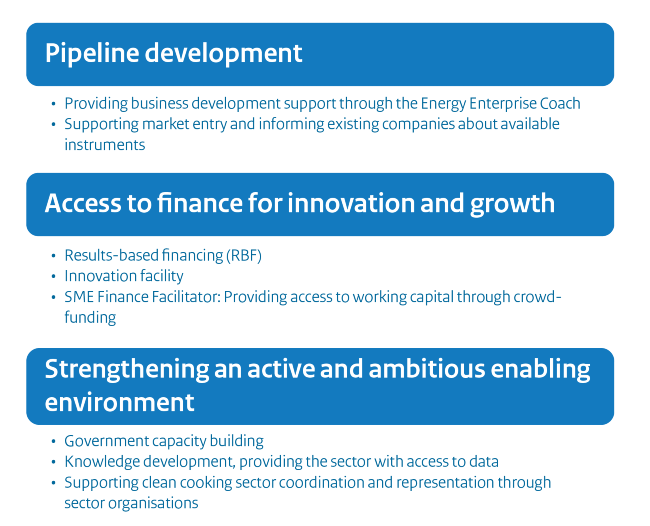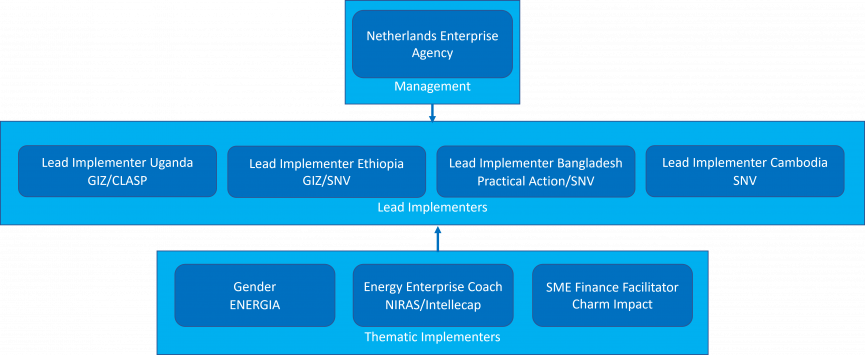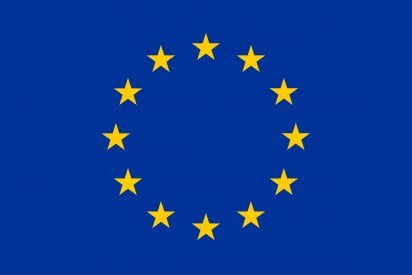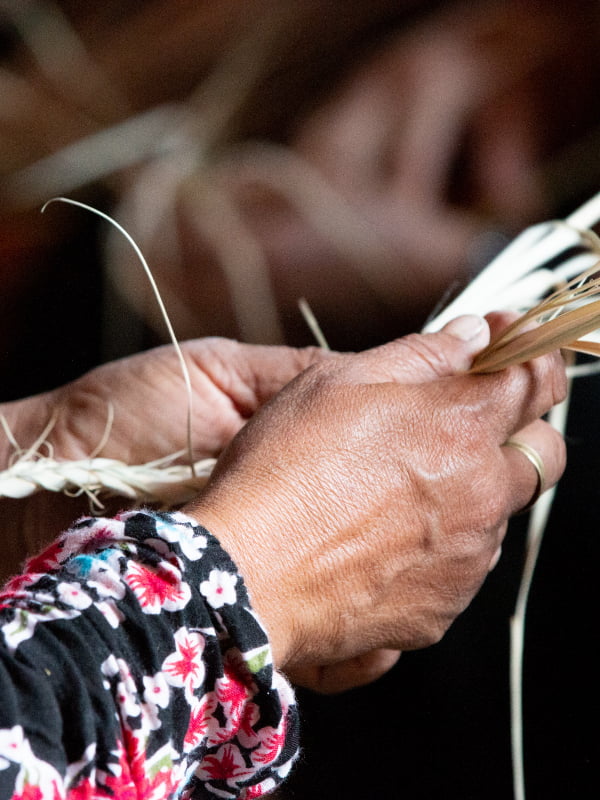Higher Tier Cooking Component - HTCC
HTCC aims to strengthen the supply side of the clean cooking sector. The programme focuses on helping small and medium-sized enterprises improve their business operations and access finance for upscaling and innovation. HTCC also helps build an enabling environment in support of higher-tier cooking.
What is HTCC?
HTCC is a 5-year programme component under Strengthening the Entrepreneurial Ecosystem for Clean Cooking (SEE-CC) (2020-2025). The European Commission finances HTCC. HTCC sees entrepreneurs as a powerful force for economic development supporting higher-tier cooking. But to grow, a solid entrepreneurial ecosystem is necessary. A sustainable entrepreneurial ecosystem must provide access to:
- financial and human capital;
- education and skills;
- a competitive business environment; and
- clear regulations.
HTCC intervention areas
HTCC supports small and medium-sized enterprises (SMEs) through 3 types of activities:

Pipeline development
- Providing business development support through the Energy Enterprise Coach
- Supporting market entry and informing existing companies about available instruments
Access to finance for innovation and growth
- Results-based financing (RBF)
- Innovation facility
- SME Finance Facilitator: Providing access to working capital through crowdfunding
Strengthening an active and ambitious enabling environment
- Government capacity building
- Knowledge development, providing the sector with access to data
- Supporting clean cooking sector coordination and representation through sector organisations
HTCC results
HTCC aims to reach 600,000 people in Bangladesh, Cambodia, Ethiopia and Uganda. The programme aims to reduce CO2 emissions equivalent to 70,000 tonnes per year. HTCC contributes to the following Sustainable Development Goals (SDGs):

HTCC activities
HTCC has activities in Bangladesh, Cambodia, Ethiopia and Uganda. In-country implementers carry out the activities. HTCC activities support small and medium-sized enterprises (SMEs) through results-based financing, an innovation facility and specific enabling environment activities.
HTCC has also developed 2 global activities that specifically target SMEs:
- The Energy Enterprise Coach offers tailor-made business development support, and
- The SME finance facilitator provides working capital through crowdfunding.
Business Development Support
Business development support is vital in enabling renewable energy enterprises to increase sales, get access to finance and scale up operations. The Energy Enterprise Coach (EEC) initiative was set up to provide this support. The EEC offers skills, services and expertise to support the professionalisation, growth and development of clean energy SMEs. The EEC offers tailor-made support plans, including one-on-one coaching, group training sessions, e-learning courses, and e-mentorship support.
SME Finance Facilitator
The Clean Cooking SME Finance Facilitator is a pilot activity. It was developed as part of the access to finance component under the SEE-CC programme. It facilitates extra finance by working with crowdfunding platforms to develop a portfolio of viable loans for SMEs in the clean cooking sector in partner countries.
HTCC implementers
The Netherlands Enterprise Agency (RVO) oversees the programme's implementation on behalf of the European Commission and the Netherlands Ministry of Foreign Affairs.
RVO has selected implementers for each country and thematic activity. The figure below gives an overview of the selected implementers.

Selected Implementers
- Management: Netherlands Enterprise Agency
- Lead Implementers
- Lead Implementer Uganda: GIZ/CLASP
- Lead Implementer Ethiopia: GIZ/SNV
- Lead Implementer Bangladesh: Practical Action/SNV
- Lead Implementer Cambodia: SNV
- Thematic Implementers
- Gender: ENERGIA
- Energy Enterprise Coach: NIRAS/Intellecap
- SME Finance Facilitator: Charm Impact
HTCC in practice
The video below shows how we implement the HTCC programme in Ethiopia.
Background information
A lot of progress towards sustainable energy for all has been made in the last decade. Still, about 4 billion people lack clean and modern cooking fuels and technologies. Using traditional biomass fuels inefficiently can cause severe health issues, environmental risks and slow down economic development.
Clean cooking:
- Reduces deforestation
- Saves households time and money
- Creates jobs
- Reduces greenhouse gas emissions, helping the climate
- Empowers women and reduces their workload, giving them time to focus on business, work and rest
- Reduces household air pollution, improving health
Closing the access gap is challenging as the conditions for creating a sustainable market for clean cooking are not yet in place. Challenges include:
- limited access to finance;
- difficulty demonstrating viable business cases and growth potential; and
- policy restrictions.
Also, at a country level, stakeholders are generally not well-coordinated. Besides this, market and sector data is unavailable or inaccessible, and broadly-shared sector strategies are missing.
Find out more
The Netherlands Enterprise Agency carries out this programme on behalf of the European Commission and the Netherlands Ministry of Foreign Affairs. HTCC activities will be carried out in partnership with the Energising Development (EnDev) programme. HTCC is part of Strengthening the Entrepreneurial Ecosystem for Clean Cooking (SEE-CC).
Questions about HTCC?

- Ministry of Foreign Affairs
- European Union (co-funded by)



